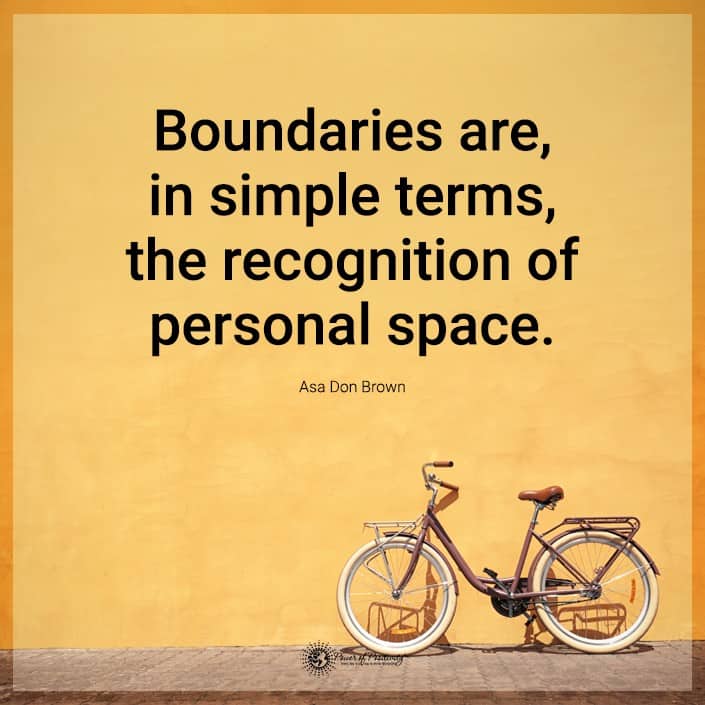Are you in a failing relationship or one that’s thriving? The honeymoon period only lasts for so long, and reality hits you like a ton of bricks. Even the best couples have things they must overcome. Don’t let troubles fester for too long because if you don’t resolve things quickly, it could be the end of something great.
Twenty Signs of a Failing Relationship
No one wants to suffer a breakup, but are there any warning signs that things will sour? The first six months to two years are “the honeymoon” phase as everything is new and fresh. Love is exciting, and this time is unlike any high you will experience.
No matter how high the euphoria is initially, it’s a whole different ballgame once you become accustomed to one another. Remember the old arguments that he left the seat up or she left the cap off the toothpaste? Well, those are just common complaints that don’t amount to anything.
The real trouble comes into play when you must deal with finances, children, family members, and pressures from work. Here are some signs that reveal a failing relationship.

1. No Intimacy in a Failing Relationship
All the laughs, intimacy, and fun date nights disappear once you settle into a routine together. You’re headed for trouble when you don’t make time for each other romantically. While intimacy is just one part of a relationship, it’s a vital part you need to stay connected.
When they no longer want to be with you, you need to get to the bottom of it. It may be a medical or stress-related issue, but you must investigate something going on.
2. Cheating
Infidelity is a big sign that something is wrong. It doesn’t mean the problem is yours either, as it may be your partner’s issue to manage. When one of you goes outside of the relationship to have your physical desires met, something is lingering under the surface that needs addressing. For some folks, cheating is the final straw and the reason to end things.
3. Resentment
Resentment comes from not resolving things right away, and it can lead to a failing relationship if it’s not fixed. You bury those hurt feelings, and they fester like cancer deep inside. Maybe your partner is deliberately embarrassing or belittling you in front of others, so you build walls to keep from getting hurt. Resentment is a big sign that a breakup is imminent if things aren’t addressed.
4. A Failing Relationship Has a Lack of Trust
A lack of trust always follows poor communication. When you don’t talk as you should, it leaves room for unjust suspicions, hurt feelings, and people that live two separate lives.
5. Dishonesty
There’s never a reason to lie to one another. If they’re being dishonest with you about some things, you wonder what other things they’re lying about. Trust is one of the foundations of your relationship, and once it’s broken, it’s a challenging aspect to repair.
6. Always Fighting
Remember the days of pure love and bliss? You’ve forgotten about all of that because all you do is argue. You don’t even know what you argue about anymore, as it seems just being in the same room with them is all it takes, and the feuding begins.
7. Financial Troubles
one reason why so many relationships fail is money issues. You must both be on the same page about finances and have an active role in management, or there will be problems. Many couples keep things separate to avoid such issues with money.
8. You’re Miserable in Your Failing Relationship
The only thing worse than being single is being with someone wrong for you. You can be more lonely and miserable in a relationship than when you are all alone. If you notice that you’re just sad with your partner these days, it’s a sign of a failing relationship.
9. You Both Do Whatever You Want
You once did everything together, but now it seems you lead independent lives. Vacations are taken separately, and nights out are now spent with other people. You’re not investing any time into your relationship, and it’s apparent on the home front.
10. Disrespect
Disrespect occurs in many ways. Your partner may speak ill of your family and friends, constantly judge and belittle you, or they may criticize you and try to hurt your feelings. It seems you can’t do anything right these days in their eyes. The person who once praised you and was your biggest cheerleader now puts you down and doesn’t have a kind word to say.

11. Physical or Verbal Abuse
This is one sure sign that your relationship has turned sour. When you start verbally or physically abusing one another, you must get out of this failing relationship. There is never any reason to put your hands on your partner in anger or to call names or destroy their self-esteem.
12. Ignoring Issues
Stonewalling becomes a typical behavior when someone wants to ignore the obvious. They would rather sweep problems under the rug than deal with them. When you confront your partner about an issue, they use this coping mechanism to disconnect from the situation as it overwhelms them emotionally.
13. A Failing Relationship Is Fraught With Jealousy
It’s healthy to have a little jealousy in a relationship, as you want to feel wanted and needed. However, jealousy can turn into cruel and destructive behavior. If your partner has unwarranted jealousy, constantly accuses you of affairs, or becomes suspicious of people you talk to, it’s a significant indication that something is wrong.
According to the American Psychological Association, jealousy is almost always a sign of someone with poor self-esteem. This person can quickly develop a preoccupation with losing someone they love. However, it also indicates control issues and underlying mental health disturbances.
14. Power Imbalance
Relationships are 50/50, and this is the way it works best. However, if one person tries to take control of the other, the power imbalance can cause issues that lead to a failing relationship. This can also occur with children, finances, and your household schedule. You’re both equal, and it’s devastating when one thinks they are better or above the other.
15. No Emotional Support
Empathy is a big part of any relationship, and one reason you need a partner is to hold you when the days are rough. Consequently, you may notice that the emotional support isn’t there anymore. They may downplay the situation and make you feel as if you’re overacting.
16. You’re Lonely
No rule book says that you won’t be lonely just because you’re in a relationship. When things aren’t going so well, you may find that you spend your days and nights alone. Your partner can be right by your side, but you still feel on your own when they won’t talk or spend any quality time with you.
17. Absence of Affection
Many people confuse affection and intimacy, but they are different. Love can occur in the bedroom in a romantic relationship, but it’s more about how you display affection outside the bedroom. For instance, it includes holding hands, kissing, hugging, snuggling, and just being there for one another. It’s little ways that show that you care deeply. When these little acts are gone, it’s devastating for a relationship.
18. Isolation from Family and Friends
Does your partner try to isolate you from friends and family members? This is a common trait of a narcissist who fears that if you are around others, they will talk you into leaving or see the error in how they treat you.
Isolating yourself from others is very dangerous and can cause you health problems. According to the American Psychological Association, being shut off from the world can affect your immunity. It can cause you to be in a long-term “fight-or-flight” situation, which means your body is under stress.
This causes inflammation that can destroy your immune system. Don’t let anyone isolate you for their gain, as it can damage your health.
19. Avoid Coming Home
One or both of you may avoid coming home. You will find errands to run or people to have dinner with to avoid facing your partner. Avoidance behaviors are a big sign that something has failed on the home front.
20. No Dependability in a Failing Relationship
The person you could count on for everything has suddenly become the most irresponsible individual you know. They’re always late, don’t answer phone calls or texts in a reasonable time frame, and never do what they say they will do. How can you be in a relationship with someone who is so undependable?
Final Thoughts on a Deciding How To Move Forward in a Failing Relationship
It would help if you remembered that no relationship is perfect, and there will be many ups and downs. It’s essential to recognize the signs that something is amiss and get counseling or help before it becomes a failed relationship. Even if things don’t work out and you go your separate ways, at least you know you’ve tried.
It’s always best to maturely address things together than to use stonewalling and avoidance behaviors and pretend like nothing’s wrong. There will be bad times if you’re together for long, but it’s all about learning what to do during these seasons to keep your relationship healthy and strong.




















